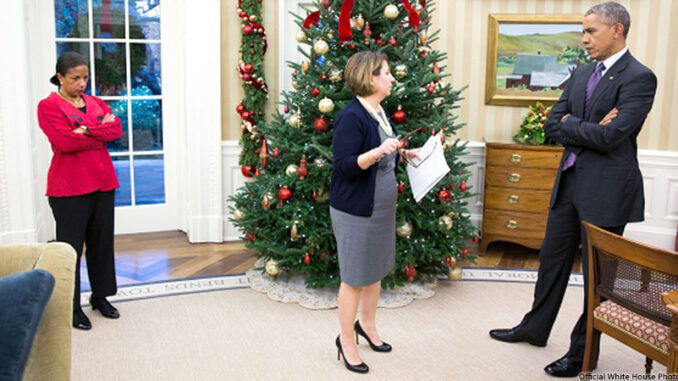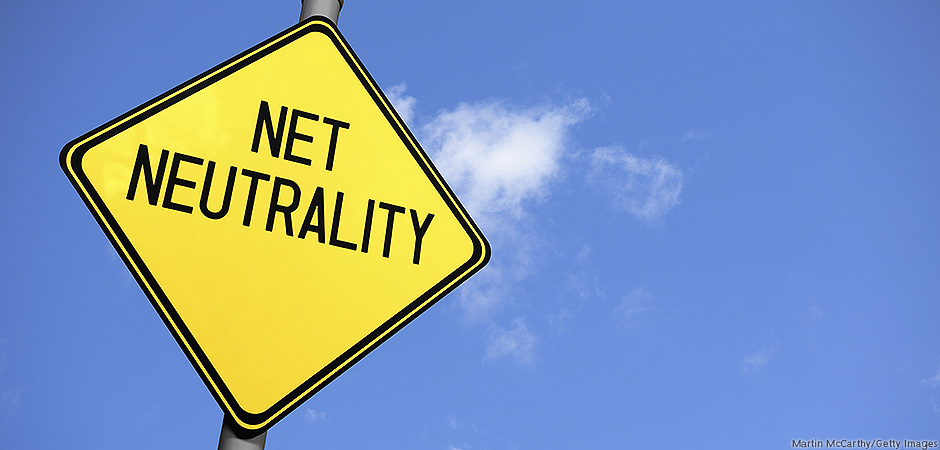
Shooting in San Bernardino
On December 2, married couple Syed Rizwan Frook and Tashfeen Malik killed 14 people and injured 21 others in San Bernardino, California, an area not far from Los Angeles. The target of the attack was Frook’s place of employment—the San Bernardino Department of Public Health—where around 80 co-workers were engaged in a holiday party at a rented facility. The couple had a six-month-old baby, whom they had taken to relatives. After the shooting, Frook and Malik fled the scene in a rented SUV and were ultimately killed by police in a shootout.
President Obama declared the shooting an act of terrorism because Frook had made a social media post where he pledged allegiance to ISIS (although he and his wife were not known to be associated with any particular cell or on any watchlist). The president made a special, televised address to the nation on December 6. He said that Americans should not see this attack as a war between Americans and Islam because ISIS (and similar radicalized militant groups) are only a tiny fraction of the billions of Muslims worldwide.
What Do You Think? In his address, the president said that, “freedom is more important than fear.” What do you think he means by this? Do you agree? Why or why not. Support your answer.
Construction on World’s Largest Telescope Halted
A consortium made up of scientists from the California Institute of Technology and the University of California want to build an observatory with a telescope atop Hawaii’s largest mountain. Founded in 2003, the project is the work of a nonprofit organization called the Thirty Meter Telescope (TMT) Observatory Corporation. It was the merging of three previously independent projects pursuing similar goals—to push the boundaries of space exploration to a new level. The telescope, set to become the largest in the world, is designed to have enhanced-imaging capabilities and greatly improved light-gathering power.
Before it began construction, the TMT was required to complete several stages of requirements, many of them related to permits. The biggest challenge to the project is the fact that the land where the observatory is to be built is sacred to many of the region’s native Hawaiians. They believe that the proposed structure would adversely affect nature and culture on the mountain. In 2010, an Environmental Impact Statement (EIS) was completed and approved by Hawaii’s governor. By the 2014 groundbreaking, however, protests had erupted and temporarily halted construction. On December 2, the Supreme Court of Hawaii invalidated TMT’s original permit for due process reasons.
Dig Deeper Find out how legal due process was not followed in this case. Identify what steps both sides intend to take moving forward.
Britain Okay’s More Airstrikes
Great Britain’s House of Commons (a Parliament body similar to the U.S. House of Representatives) recently voted 397-223 in favor of launching airstrikes against the Islamic State. Prime Minister David Cameron said that IS (also known as ISIS and ISIL) has become a threat to all of Europe, with at least seven plots on England discovered this year alone. The issue has gained more urgency since last month’s attacks in Paris. In an address before the House of Commons, Cameron said that the Royal Air Force has the ability to focus on small but highly accurate targets, something other military forces (including the U.S.) lack.
Syrian President Bashar Assad says that the airstrikes are illegal and will ultimately fail. Assad told a British newspaper that ISIS cannot be defeated without the coordination of forces on the ground, adding that the airstrikes will only fuel and spread more terrorism. The only airstrikes that Assad considers successful have been carried out by Russia.
Dig Deeper Cameron said that this action is only one part of a larger strategy to defeat ISIS, which includes diplomacy, aid, humanitarianism and governance. Find and report on at least one specific strategy regarding one of these areas.
Net Neutrality Back in Court
Earlier this year, btw brought you news that the Federal Communications Commission (FCC) had approved “net neutrality.” The Internet was reclassified as a utility to ensure that telecommunications providers treat all internet traffic equally. This means they cannot block or change the speed of access based on an ability to pay more. The debate was a hotly-contested one. In response, many Internet Service Providers (ISPs) have collectively filed a lawsuit with the D.C. Circuit Court of Appeals to have the regulations overturned.

The main concern of the lawsuit is reclassification. While those bringing the suit don’t oppose the concept of net neutrality rules, they say that the FCC does not have the authority to reclassify the Internet as a “common carrier service,” and that the rules that were adopted threaten growth and future innovation. Another issue addressed in court was the question of whether mobile service should be regulated in the same way as cable Internet. The plaintiffs argued their case before a three-judge panel. A final ruling on the case is not expected until the spring.
